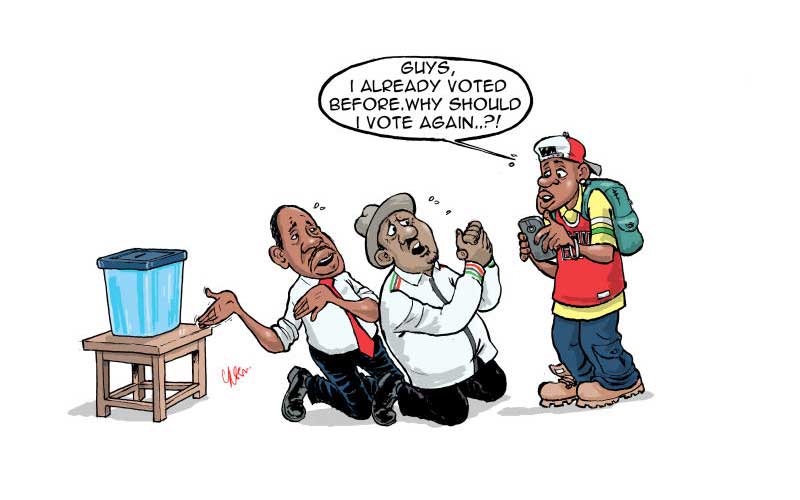×
The Standard e-Paper
Fearless, Trusted News

Youth. Nothing excites Kenya’s younger population more than being referred to as such by politicians who promise them the sun, the moon and the stars every election cycle, but leave them wallowing in sufferance and fighting each other.